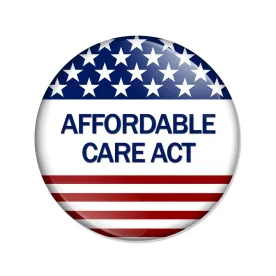Although the ACA Play or Pay mandate was effective in 2015, it has been unclear when or how the IRS would collect any penalties assessed under that mandate. Earlier this month, however, the IRS quietly provided its answer by updating an online ACA resource and stating that penalty notices for the 2015 year would be issued in “late 2017.” Under the new procedures, an employer who receives one of these notices will have only 30 days to respond. Employers should act now to maximize their ability to respond timely and minimize inadvertent penalty assessments.
Stated generally, the ACA’s Play or Pay mandate requires an applicable large employer to offer its full-time employees health benefits that provide minimum value at affordable premiums. If an applicable large employer fails to comply with the mandate, and if at least one full-time employee purchases health coverage on an ACA exchange and receives a premium tax credit, the employer will be required to pay a nondeductible penalty under Section 4980H of the federal tax code. An applicable large employer is required to file IRS Forms 1094/95-C to report compliance with the Play or Pay mandate or, in the IRS vernacular, the Employer Shared Responsibility requirement.
On November 2, the IRS updated Questions 55 – 58 of its Questions and Answers on Employer Shared Responsibility Provisions under the Affordable Care Act page to state the procedure by which it will notify an employer of potential penalties. Click here to access that page. If the IRS believes an applicable large employer owes a Section 4980H penalty, the IRS will issue a Letter 226J that will include:
-
A brief explanation of Code Section 4980H;
-
A table summarizing the Play or Pay penalty, by month, that the IRS believes is applicable, and an explanation of the table;
-
A Form 14764 that the employer may use to respond to the IRS;
-
A list of full-time employees, by month, who received a premium tax credit, as well as certain indicator codes reported on the employer's Form 1095-C;
-
A description of the actions that the employer may take, depending on whether it agrees or disagrees with the IRS’s proposed payment;
-
A description of the actions the IRS will take if the employer does not timely respond; and
-
The name and contact information of a specific IRS employee the employer may contact with any questions.
An employer will generally have only 30 days to respond to Letter 226J. If the IRS does not receive a timely response, the IRS will assess the Play or Pay penalty it believes is appropriate, and will issue a notice and demand for payment. If, instead, an employer wishes to contest the penalty, the IRS has set forth additional procedures that will apply. For instance, an employer may request a conference with the IRS Office of Appeals. It is critical that an employer comply with the procedures and deadlines set by the IRS.
As if employers do not have enough on their to-do lists this time of year, there are important tasks to add, including these:
-
Take steps to ensure that IRS letters are routed to the appropriate person in your organization;
-
Confirm access to data regarding your organization’s 2015 Play or Pay compliance;
-
Ensure prompt investigation of whether any Play or Pay penalties apply, confirm the accurate calculation of any such penalties, and coordinate an appropriate response to the IRS; and
-
Seek the assistance of benefits counsel to timely contest Play or Pay penalties.




 />i
/>i

